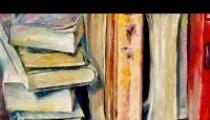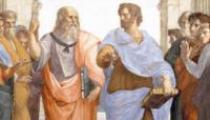Feast of St John XXIII
It is Spring in Australia, and so we are in the midst of floods. We also recently celebrated the Feast of Pope Saint John XXIII, on 11 October.
Why is Pope John’s Feast Day celebrated on 11 October? It is because on this day in 1962 he solemnly opened the Second Vatican Council, which he had boldly called, to take thought and set some directions for the Church in the world as it was in the 1960’s – still in many places in chaos and poverty after two World Wars, while in other places also suffering under atheist and totalitarian regimes (notably China, and the Eastern bloc countries of the Soviet Union), and in much of Western Europe beginning to look to technology and material comfort and delights for refreshment and meaning. The swinging 60’s were in the making.
The Council – over 2,000 bishops took part – followed some of the drafts prepared for them, and jettisoned others. The Library has a number of interesting an illuminative commentaries on the history of the drafting, debating and passing of the 16 documents which from then until now have been deeply formative of the life of the Church. Three notable studies of interest in the Library – not all with the same view of the history of the Council – are Xavier Rynne’s ; the Rhine flows into the Tiber; and also a study by Fr Aidan Nichols OP.
Basil Cardinal Hume OSB, the late Archbishop of Westminster, on a visit to Melbourne some years ago, said that there were (at least) four documents of the Council which deserved study by all Catholics: the documents on the Liturgy (Sacrosanctum Concilium); the Church (Lumen Gentium); the Church in the world of the present day (Gaudium et Spes); and Divine revelation (Dei Verbum).
In the immediate wake of the Council, many (enthusiasts and pessimists alike) thought that the Council had changed Catholic doctrine – and the Spirit of Vatican II was invoked ( or blamed) for many visible changes, ranging from the almost total abandonment of Latin in the Western Latin Church, through the abandonment of religious habit and / or religious vows by many clerics and religious, to the fundamental changes made in the teaching and proclaiming of theology in seminaries and in pulpits.
The Council Fathers did not change any article of Catholic doctrine received in the tradition. The detailed changes in the liturgy of the Latin Church were not imposed by the Fathers (apart from a couple of changes to the Divine Office, namely the abolition of the liturgical hour of Prime and the decision to spread the cycle of the Psalter over a longer period than one week); they were mostly devised by post-conciliar commissions of (sometimes self-styled) experts. The wisdom in the specific changes of liturgical discipline are open to (charitable) consideration and discussion, but the essence of the liturgy is not changed: it is the prayer of the whole Church as the Bride, Spouse and Body of Christ, made to the Father, in which Head and members of the Church are united by God’s grace. It is the whole living and objective rite of sacraments and sacramentals, connecting us to the Divine, until time and space pass into eternity, and sacramental encounter into the beatific vision of God, face to face, as Creator, Redeemer, Sanctifier, and Lover of every human creature.
The 60th anniversary of the convocation of the Council seems a good occasion to promote some understanding of what the Council said and did – and what it did not! Especially in view of the Library’s close affiliation with the work of chaplaincy to tertiary students, we intend to have a series of theological talks by interesting and qualified speakers over the next months, into the new year. Watch this space!!
Share:





